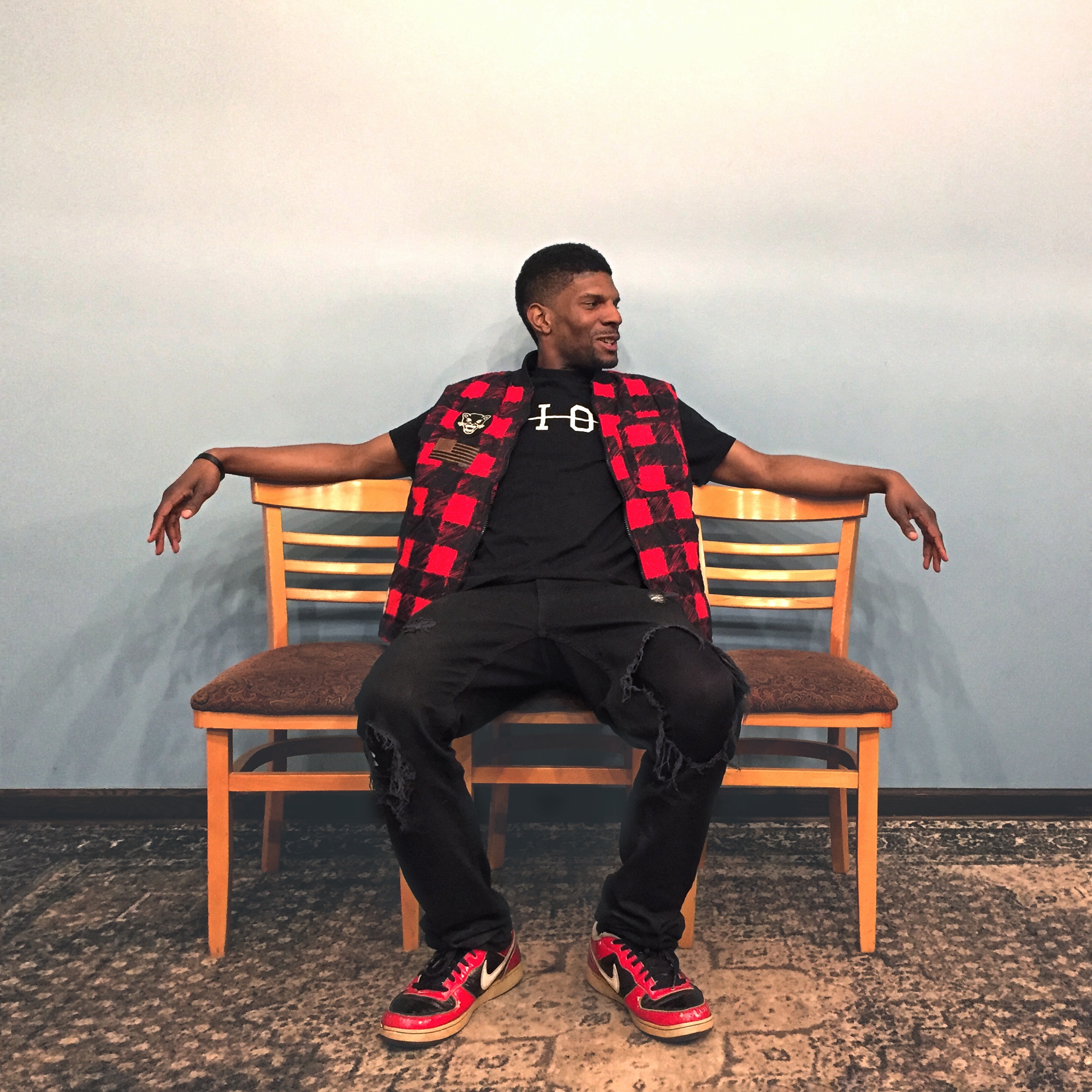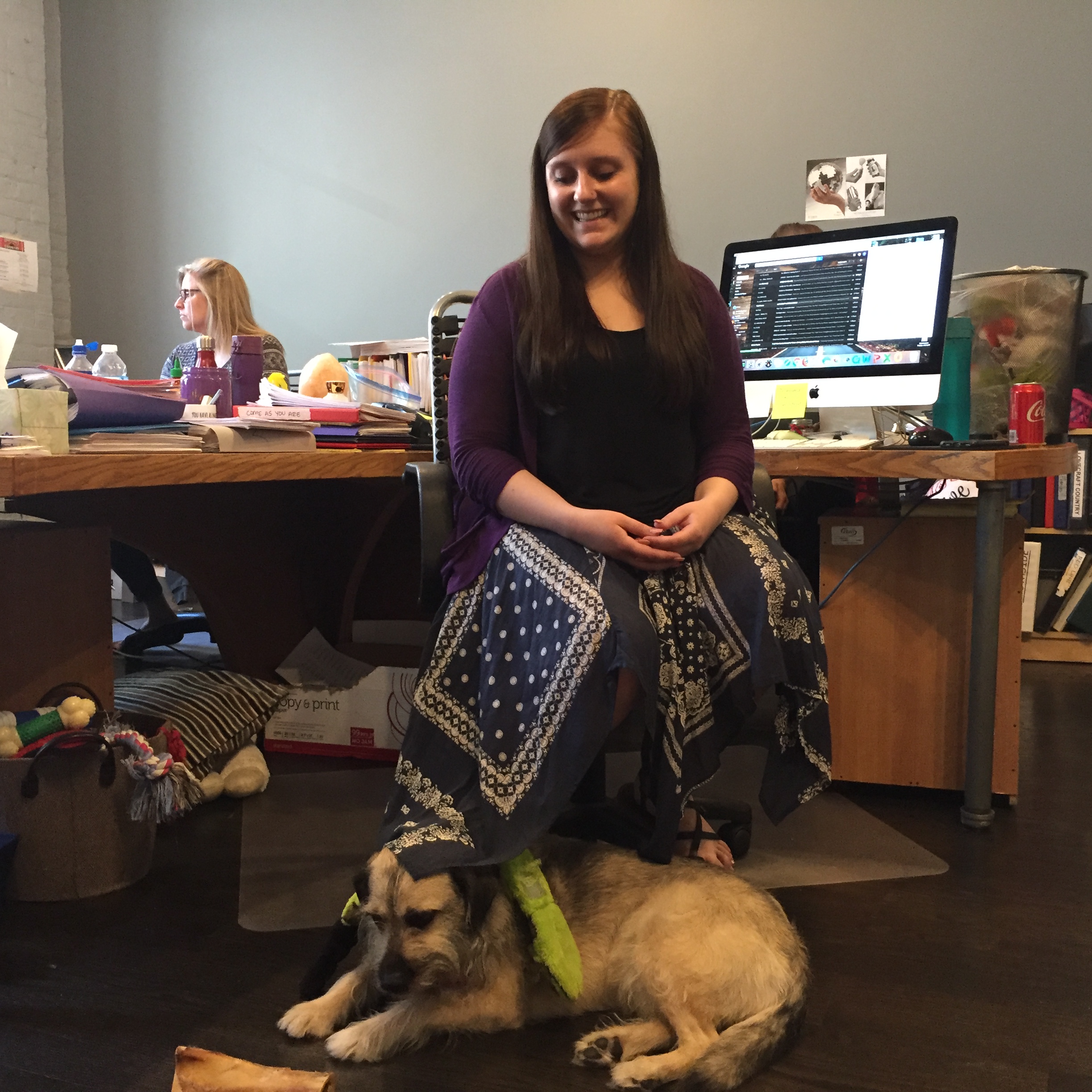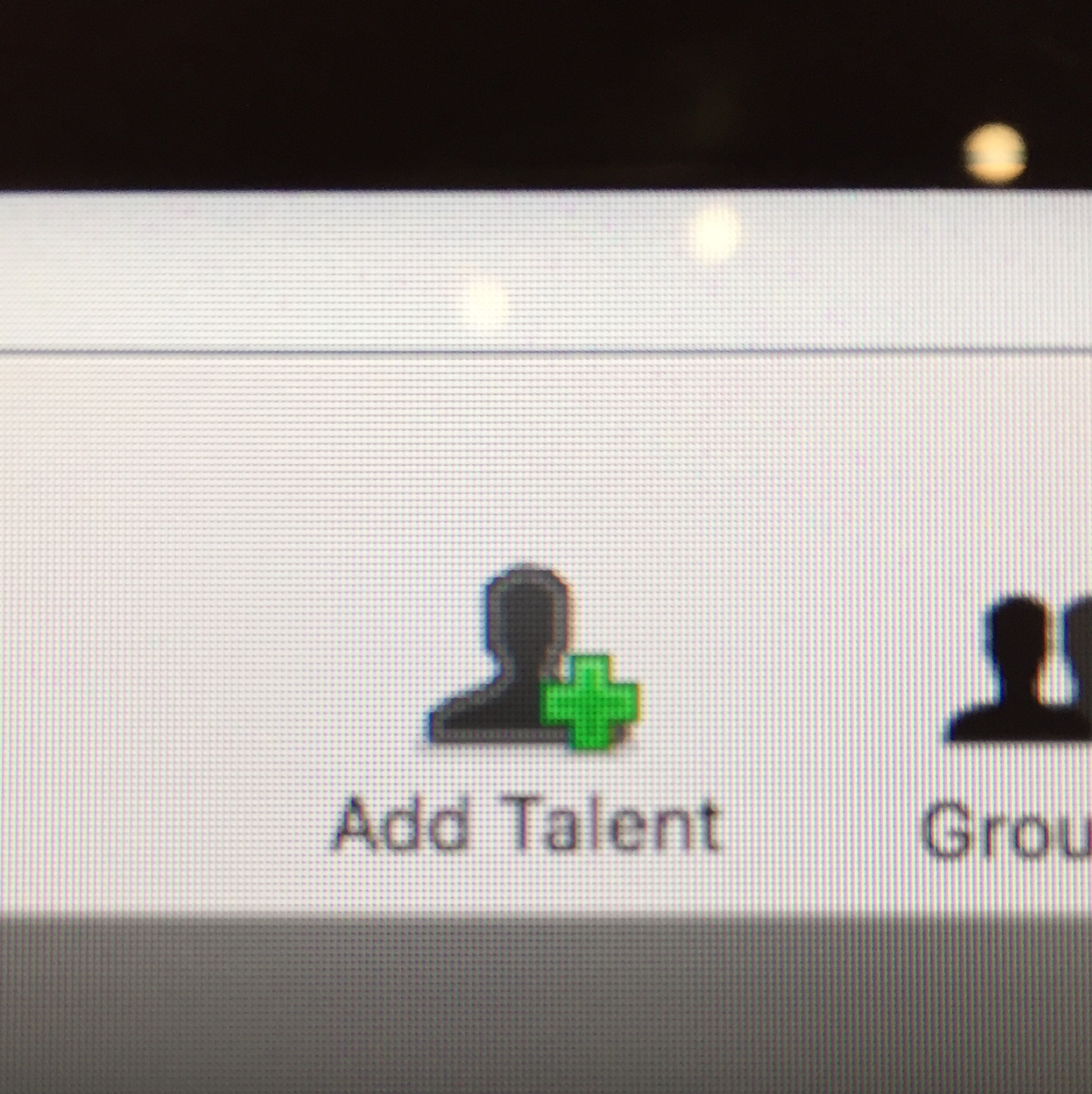Internship at Paskal-Rudnicke Casting
Actors' brains are full of beliefs, imaginations and worries about what goes on at casting agencies, and for years I've read articles written by casting directors about how to have a successful audition.
But this year, I got to experience it for myself: In March, I began interning at Paskal Rudnicke Casting in Chicago. Since then, I've observed or participated in every stage of the casting process and seen hundreds of auditions by Chicago actors at every career level for all kinds of projects (TV, Film, Commercial, Industrial and Theatre.)
The staff there is inspiring: kind, talented and hardworking. It's been a craft– and career–changing experience, and I've procrastinated writing about it, because there's so much to share.
So this post will focus on what I've learned about auditioning on camera.* I've seen lots of habits, beliefs and priorities walk into the audition room: some of them are helpful, some of them aren't. Here are some under– and over–rated practices, in my highly informed, important and correct opinion:
Underrated
Knowing the Story of Your Scene Inside and Out
You're a storyteller. The story is not the lines: the story is the series of events that occur and the way you experience and react to them.
If you're going to tell that story, you need to know it so well you could tell it at surprise gunpoint (surprise gunpoint is maybe also a band name).
If your audition sides are seven pages long, you need to know everything that's happening on those seven pages. If you can memorize the lines, great. But above all, memorize everything that happens, so that if you lose the words, you won't lose the story—you can keep telling the story while you glance at your sides.
If your audition is a one-line thing, you should know it just as well. If you have four seconds on-camera, that's enough time to tell a story with half a dozen chapters. Know what happens in those chapters.
If you're auditioning for a commercial, there may be some technical adjustments, but the principle applies: you're telling a story, and you need to know it like it's your own life story.
Taking your time
The job you're interviewing for is "the best person in the world to tell this story." So be that person in the room. If they throw you a curveball, take the time to process it and make the best choice you can.
True, they probably have a lot of people to see, and if you stand there "prepping" for three minutes, they'll tell you to get the show on the road. But never short-change your performance because you "don't want to waste their time."
As long as you've prepared quality work, there's no way you can waste their time, because in that moment, their literal job is to coach you and consider your performance carefully. If they're behind schedule and they need to move you along, they'll let you know. Otherwise, focus on the job, not how long it takes to do it.
Turning on a Dime:
Okay, so after hours prepping this scene, you perform it perfectly and then they ask you to do it again but change everything—to craft an equally good performance in seconds, instead of hours.
This is really hard, and also not that hard at all: prep your best interpretation of the scene, but once you've got that take, don't be afraid to try something completely different.
When you're preparing, don't get hung up on details of how you want it to go. They may ask you to tear the whole thing apart and rebuild it. See this as a challenge and be willing to let go of your expectations. If you can learn to repackage your story at the drop of a hat, you will make a really good impression. I promise.
Letting the Camera See You
Just like we learn to cheat our bodies and faces towards an audience onstage, we have to develop an instinct for keeping the camera "in the loop" on what we're doing, saying and experiencing.
If your experience is primarily in stage—as mine was—you can almost think of the camera as a miniature audience. Not in numbers, but literally miniaturized: hundreds of tiny patrons in a proscenium-style house, crammed in the space between you and the lens.
This takes time and experience to master, so an on-camera class would be really helpful (a workshop with AJ Links will change your life), but you can also film yourself on your phone, or just watch film and tv and ask yourself "where do they put the camera to best capture the performance?" In the audition room, they probably won't move the camera to capture your performance better, so you'll need to know how to put yourself in the best position to be seen.
Although a teacher is the best teacher here, here are a few easy mistakes and easy fixes:
- If you're asked to interact with an imaginary object, put it towards the camera, never to the side or—god forbid—the back of the room. We need your face.
- Keep a consistent point of focus for your scene partner—probably a reader, but if there isn’t one—or if it’s a monologue or some weird thing—choose one and stick with it, preferably within like a foot and a half of the lens.
- If your character has more than one person/object/idea to grapple with, put one on each side of the camera so that we can easily follow your story. You probably wouldn’t cross camera like that on set, but it’s best practice for auditions.
Being Detailed and Honest About Your Availability
It sucks how fast this business moves. You may not know you have an audition until the night before, or the day of. I've seen people get booked for a shoot at 5:30pm when they're supposed to be on set at 8am the next day.
But what sucks even more is when a client wants to cast you at 5:30pm for an 8am shoot, and your agent has to call the casting agency and say oops you can't do it because you forgot that you'd be out of town for the next seven months.
This is a crazy business, with day-jobs and classes and conflicting jobs and details changing all the time, so it's understandable to have conflicts and a changing schedule. But that's why you have to keep a careful calendar of all commitments, including tentative ones: if you're on check avail or first refusal, that needs to be on your calendar, too.
If you have a complicated scheduling situation, communicate it as clearly and accurately as you can. If you have something that can be moved, still put it down—they may be able to work with your schedule. But anyone who is considering you for a role needs to have accurate information about your availability.
Also, if you have to fill out any kind of info sheet, write clearly. It may not affect casting, but some intern will have to decode it, and they will love you and remember your name if you print very clearly.
Overrated
Being Nice, Careful and Deferential
They're casting directors, not casting dictators. Like any good director, a casting director is (should be) a collaborator in the audition room.
So, of course, respect your collaborator by bringing your best ideas of how you want to do the material and be excited to try any redirections they give you. but diminishing yourself doesn't help them at all: you were invited to the audition because you are the world's foremost expert on you. When you walk in, don't apologize with your words or with your body: it's your room for as long as that audition lasts, and you're there to present a masterclass in how you would perform the role.
Yes, at first, a casting director just seems like another cruel someone with the power to reject you forever. But unless they're kind of the worst, they are trying to help you get a job. (They're helping other people too, but they want your best performance as much as you do.) The actors they call in over and over are the ones who have developed that kind of collaborative, confident rapport.
So as long as you're not rude or dismissive, there's no reason to walk on eggshells in there. Prep the hell outta that audition, then walk in there and own it: play the way you did when you fell in love with telling stories.
Getting the Lines Word-Perfect:
No matter what you're auditioning for, it's more important to stay in the scene than it is to get the words right. I've seen actors derail a fantastic take because they got the words a little bit wrong. If you done your prep, you'll be able to paraphrase and seamlessly move the story forward, even if you lose some of the wording. The story will work without the words, but the words won't work without the story. Focus on that.
Schmoozing the Session Runner:
If it's your initial audition for a project on-camera at PR (i.e. not a callback), chances are the person in the room won't be making the final call on casting. The person at the computer is probably an intern, and the person behind the camera has been briefed on what the client is looking for and is there to help shape your performance in that direction—that's likely to be the extent of their involvement with the higher levels of the project.
Thusly and thereforth, what matters most is what you put on camera: that's what will be reviewed by the casting director(s) and the client, and that's what will determine your fate forever and seal you as a success or a failure for all eternity.
Session runners—and interns—will sometimes be asked who was good, who they like, etc. so their opinion of your performance is important. But unless you do something horrendous, they won't talk about—or even remember—how they felt about you personally. On occasion, your initial audition for a project will be with one of the casting directors at the agency. In this case, their gut feelings and instincts towards you will matter more, but they'll still be focused on your performance in the room, how prepared you were and how well you took direction. Focus your efforts there. Walk into the room more concerned about getting a good take than you are about being accepted by this particular person: that's an attitude that will make you stand out and earn their respect over time.
Again, this is not to say that you can be a horrible person. Show empathy and practice a professional demeanor at all times. But stop walking in like a beaten puppy, because you are brilliant and unique and you've done your homework.
Being Perfectly on Time:
Ok, look: always make every effort to be prompt and professional, but don't obsess over the time to the point that it detracts from what you're there to do. I'm definitely not saying to roll in whenever you feel like it, but if you aren't on time...
...DO tell your agent ASAP. They will get in touch with the casting office to explain and apologize so you don't have to. If you don't have an agent, call the office yourself and let them know. Be polite, but know that this is not an irregular thing and nobody is mad at you, because you have to make sure that you...
...DON'T let it affect your performance. I've seen many actors enter in a state of panic because they didn't arrive right on time. The auditors invited you because they want to see your best work. Yeah, they wanted to see it at 11:45, but if they have to see your best work at 12:15, they'll probably be just as happy with that. If you're late and amazing, they'll forget you were late. If you're late and bad because you were late, then what are we even doing here.
Thinking Casting is About You
I'd heard it over and over, but it never truly hit me until this experience: there are two dozen reasons you might not have been called back, or if called back, didn't book it. You know that already, because you probably spend hours every week worrying about some of them, wishing you could just be more or less ______ and then you'd get more work. But even that thing is unlikely to be the reason you don't book it: not fit enough, too fit, not tall enough, too tall, not enough credits, not attractive enough, too attractive, not funny enough, too funny, whatever, it's also probably not that.
For every person who books a role, there are many others perfectly qualified. The person who books it is just the person who books it—I've heard some weird-ass subjective discussions go on about actors that had nothing to do with anything they'd ever thought about in their lives. The staff at PR is great about recognizing talent, perseverance and hard work, but to be honest, clients aren't always so savvy to our craft. They might fixate on something outta left field and make a decision based on that.
Even bad actors get cast, and sometimes great ones wait years for their moment to come. So control what you can control. Work hard to give yourself every edge you can find and earn your luck with perseverance, passion and being a good person. It'll pay off.
At least that's what I'm banking on.
There's so much more that I've learned from this experience, I may have to write another post about it. In the meantime, I've had lots of people ask me about what goes on in these mysterious and powerful institutions, so if you have casting office questions, let me know. I don't know everything, but I'm happy to share whatever I can, or if I don't know, maybe I can find out.
Got any audition tips of your own?
I'd love to hear about them in the comments!
*My experience is specific to PR, so it may not reflect the audition experience at other casting agencies.




